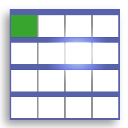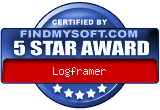The goal(s)
 A goal is an overall objective – generally a problem that is situated on the level of the (local) society as a whole – that the project contributes to. Achieving the project’s purpose won’t be enough to solve this problem. Many other things need to be addressed and solved before this goal will be achieved, but your project makes its own contribution.
A goal is an overall objective – generally a problem that is situated on the level of the (local) society as a whole – that the project contributes to. Achieving the project’s purpose won’t be enough to solve this problem. Many other things need to be addressed and solved before this goal will be achieved, but your project makes its own contribution.
The goal serves as a point of reference or a framework for your project. This is important to verify that your project serves the larger good and benefits the society as a whole. You should think about how your project relates to the efforts of others: local and national authorities, other NGOs, the local civil society, religious institutions, local and international businesses and other actors. Are you working with the forces of change, or against them?
When you formulate your goals, make sure that they are not too ambitious, too broad or ‘too far away’ from your project. When your project’s purpose is to provide drinking water in a certain region, the link with the goal of ‘reducing the negative effects of globalisation’ may be too far fetched. ‘Improving people’s health’ in that same region or in that country is a more realistic goal. The idea is that your project makes a significant contribution to that goal.
For international development, an important tool for the alignment of assistance are the Poverty Reduction Strategy Papers that are developed by national governments. These documents explain the government’s development strategy, but also provide a framework for donors and international development actors to align their projects with the national policy and with other actors.
Because the goals are bigger than the scope of the project, they are also outside the control of the project. Their achievement doesn’t depend entirely on your project or the organisations that are involved.





Add new comment